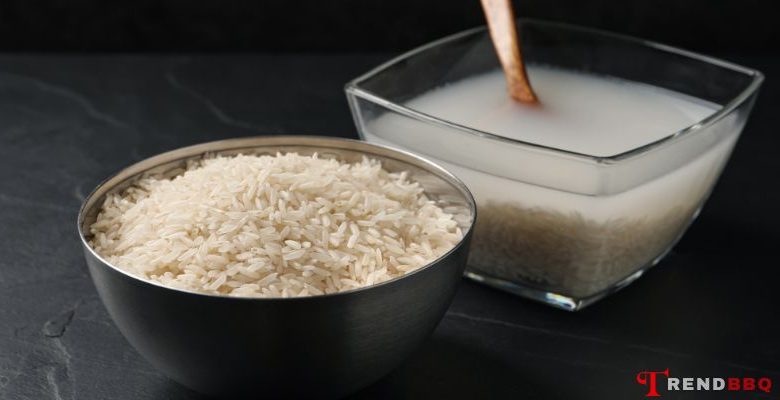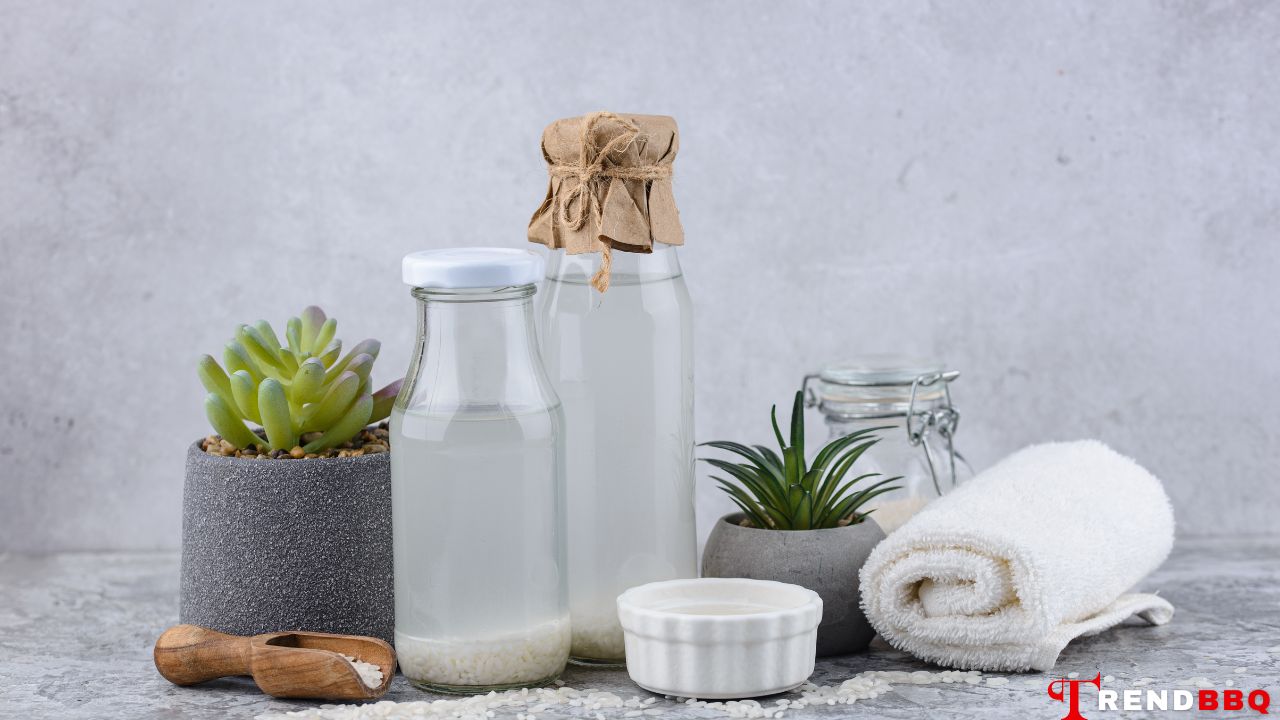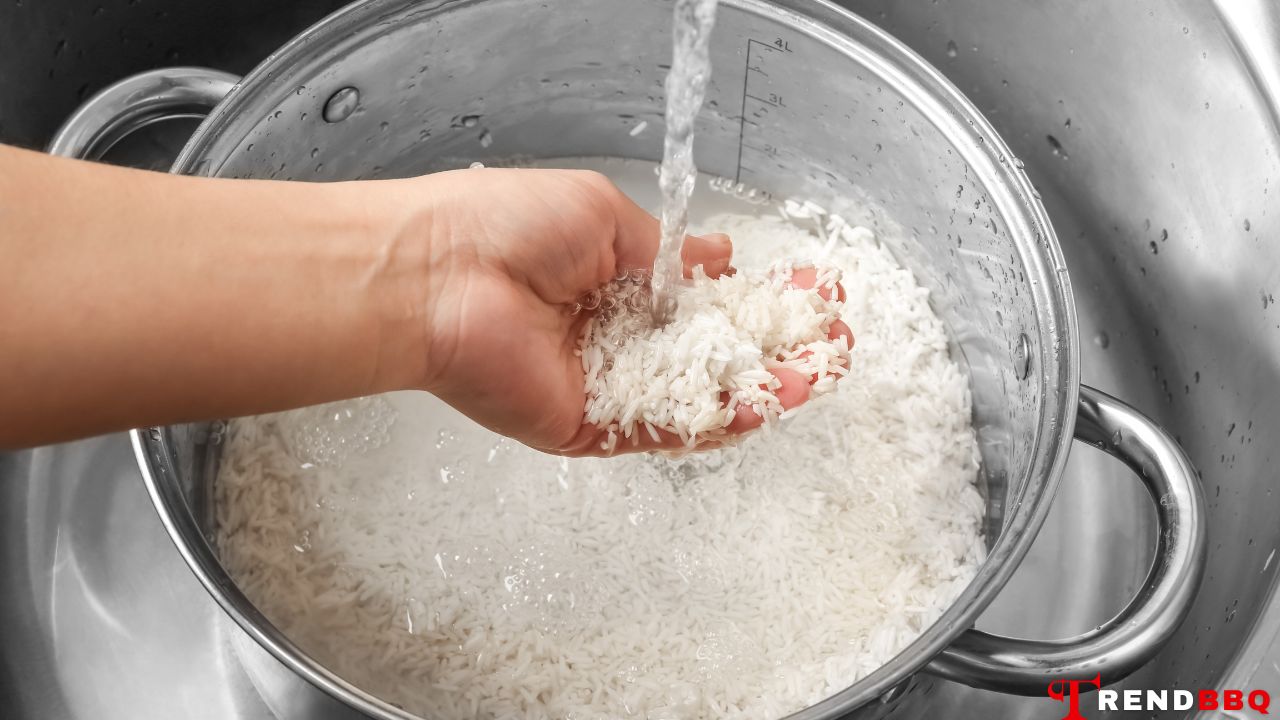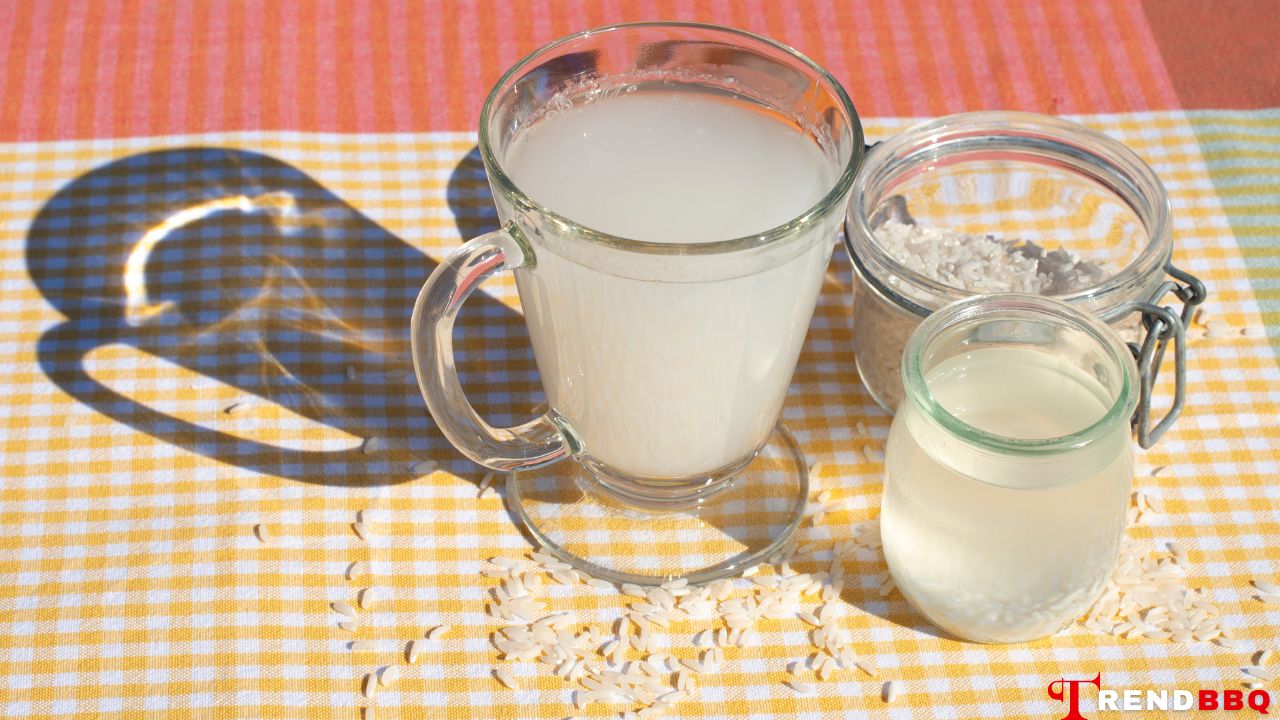
When it comes to natural hair care remedies, few things have captured the attention of beauty enthusiasts as much as rice water. With its rich history and reputation for promoting hair growth and enhancing hair health, rice water has become a popular DIY treatment. In this article of Trendbbq.com, we’ll delve into the art of making rice water for hair and explore its potential benefits. If you’re curious about harnessing the power of this ancient beauty ritual, read on to discover the steps to create your very own rice water elixir.
Table of Contents,
1. The Science Behind Rice Water’s Hair Benefits
Rice water, the starchy liquid left over after soaking or boiling rice, is a treasure trove of nutrients that can benefit your hair. It contains vitamins, minerals, and amino acids that nourish the hair follicles, strengthen the strands, and improve overall hair health. Inositol, a carbohydrate found in rice water, is known to repair damaged hair and enhance hair elasticity, making it less prone to breakage.

2. How to make rice water for hair
Step 1: Gather Your Ingredients
To start making rice water for hair, you will need the following ingredients:
- Uncooked rice (preferably organic)
- Water
- A clean bowl
- A fine mesh strainer or a cloth
- A spray bottle (optional)
Step 2: Rinse the Rice
Start by rinsing approximately 1/2 cup of rice to remove any impurities. Use cold water and gently swish the rice around. This initial rinse is vital to ensure that no unwanted chemicals or residues end up in your rice water mixture.

Step 3: Soak the Rice
Transfer the rinsed rice into a clean bowl and add 2 cups of water. Let the rice soak for about 15 to 30 minutes. During this time, the water will begin to absorb the beneficial nutrients from the rice.
Step 4: Strain the Rice Water
After the soaking period, carefully strain the rice water into a separate bowl or container. You can use a fine mesh strainer or a cloth to catch any rice grains, ensuring you’re left with a clear liquid. The cloudy rice water is now your natural hair tonic.
Step 5: Ferment the Rice Water (Optional)
For even more potent results, consider allowing the rice water to ferment. Simply leave the strained rice water at room temperature for 12 to 24 hours. Fermentation enhances the nutrient content and pH level of the rice water, making it even more beneficial for your hair.

Step 6: Apply to Your Hair
You can use rice water as a hair rinse or a spray. After shampooing and conditioning your hair, gently pour or spray the rice water onto your scalp and hair. Massage your scalp for a few minutes to ensure even distribution. Let the rice water sit for 5 to 10 minutes.
Step 7: Rinse and Style
After the recommended time, thoroughly rinse your hair with cool water. You can then proceed to your regular styling routine. Some people prefer to use rice water as a final rinse and do not rinse it out, allowing the nutrients to continue benefiting the hair throughout the day.
3. Side effects of using rice water for hair
Rice water is a popular natural remedy that some people use for hair care. It’s the starchy water left over after soaking or boiling rice. While many people claim that rice water can have positive effects on hair, it’s important to be aware of potential side effects as well. Here are some possible side effects of using rice water for hair:
- Dryness and Brittle Hair: Rice water can have a protein-building effect due to the presence of amino acids. While this can be beneficial for some hair types, excessive use or leaving rice water on the hair for too long might lead to protein overload, making hair feel dry and brittle.
- Buildup: If rice water is not properly rinsed out or if it’s used too frequently, it can lead to product buildup on the scalp and hair, making the hair feel heavy and dull.
- Scalp Irritation: Some individuals may experience scalp irritation or itching as a result of using rice water. This could be due to sensitivity to the compounds present in rice water.
- Allergic Reactions: Allergic reactions are possible when using natural remedies. If you notice redness, rash, or any signs of an allergic reaction on your scalp or skin, discontinue use immediately.
- Odor: Rice water can have a distinct odor that some people might find unpleasant. This can linger in the hair even after rinsing.
- Color Changes (Temporary): In some cases, using rice water on light-colored hair might lead to a slight change in color, giving hair a slightly yellowish tint. However, this effect is typically temporary and can be mitigated by rinsing the hair thoroughly.
To mitigate potential side effects:
- Patch Test: Before using rice water extensively, perform a patch test on a small area of your scalp and skin to check for any adverse reactions.
- Dilute: To reduce the concentration of proteins and minimize the risk of protein overload, you can dilute rice water with plain water before using it on your hair.
- Limit Frequency: Using rice water sparingly, such as once a week, can help prevent the risk of buildup and other issues.
- Rinse Thoroughly: Ensure you rinse the rice water out of your hair thoroughly to prevent any potential buildup.
- Observe Your Hair: Pay attention to how your hair reacts to rice water. If you notice any negative effects, consider adjusting your usage or discontinuing it altogether.
Remember, everyone’s hair is different, so what works for one person might not work for another. If you’re uncertain or have concerns about using rice water, it’s always a good idea to consult with a dermatologist or hair care professional before trying any new hair treatment.
4. FAQs
What is rice water, and how can it benefit my hair?
Rice water is the starchy liquid left after soaking or boiling rice. It’s rich in vitamins, minerals, and amino acids that can promote hair growth, improve hair texture, and add shine.
How do I make rice water for hair?
To make rice water, rinse 1/2 to 1 cup of rice thoroughly to remove excess starch. Soak the rinsed rice in 2-3 cups of water for about 30 minutes, stirring occasionally. Strain the water into a container for use.
Should I use fermented or non-fermented rice water for my hair?
Fermented rice water is often preferred as it undergoes a natural fermentation process that increases its nutrient content. It can be more beneficial for hair health compared to non-fermented rice water.
How do I apply rice water to my hair?
After washing your hair with shampoo, apply rice water to your hair and scalp. Gently massage for a few minutes, then let it sit for 10-15 minutes. Rinse thoroughly with water. You can do this 1-2 times a week.
>>> See more: How to lose face fat: 7 effective secrets in just 1 week



